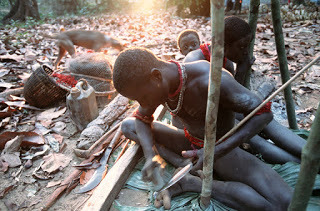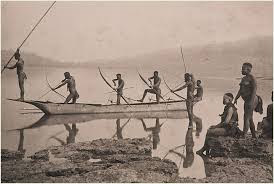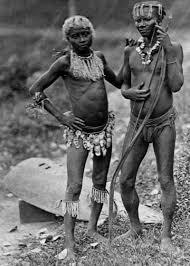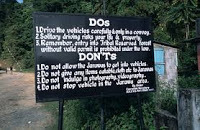Regrets
We all have regrets, and usually they are highly personal. Most of them are about decisions we made long ago and when ruminating (or obsessing) about these regrets, we fantasize that a different choice might have led to a different life. One is that is would, of course, be better than how we ended up.
 But there are some people who regret what they did to others, and that must be a hell of its own kind. And what if the people you hurt were strangers? What if you played a major role in actually changing their way of life? And not for the better?
But there are some people who regret what they did to others, and that must be a hell of its own kind. And what if the people you hurt were strangers? What if you played a major role in actually changing their way of life? And not for the better?I'm not talking about politicians, or despots, or law makers, but anthropologists, people who have also, in many situations, had a hand in destroying the very cultures they studied.
In the last few months, The New York Times published two articles on the people of the Andaman Islands. These islands are in the Bay of Bengal and under the jurisdiction of India. And what makes Andaman Islanders so special is that they are hunters and gatherers who have only recently been integrated into modern Indian life, and it's fair to say things are not going well.

Western culture has a very long history of trying to end, or protect, what they see as "primitive cultures" (an insult in itself). Although the Indian government decided to try and protect the Jarawa and Sentinelese people by surrounding their land with a buffer zone, the modern world leaked in. Indian anthropologist T.N. Pandit, now 82, knows he is partly, or fully, to blame for encouraging these people to leave the forest and interact with Indians. For two decades he spent time with the islanders and eventually, they did indeed leave their home and seek the goods of modern culture. The result is a destruction of aboriginal life and the very soul of a people. And lots of horrific culture clash.

For example, The Times also reported on the homicide of a 5-month-old baby that was conceived when a Jarawa woman was raped by an outsider. The light-skinned baby was clearly not a full Jarawa and apparently they have a tradition of killing babies outside their blood line.
It's a mess and the authorities don't know who to prosecute or what to do.
Pandit now regrets his role in what has turned out to be the usual story of a society that went from self sufficiency and an intact cultural structure to corruption and poverty. As Pundit said to The Times, "Now they have gotten infected. They have been exposed to a modern way of life and they cannot sustain. They have learned to eat rice and sugar. We have turned a free people into beggars."
 Mr. Pandit sits at home ruminating on his life as a destroyer of a culture and a people. But he is not alone. As the world becomes more populated, and its most remote environs penetrated, this story will continue to be the usual one. There is something about "modern" culture (read Western culture) that has a manifest destiny about it. We can't help butting in and these groups can't help wanting what we have.
Mr. Pandit sits at home ruminating on his life as a destroyer of a culture and a people. But he is not alone. As the world becomes more populated, and its most remote environs penetrated, this story will continue to be the usual one. There is something about "modern" culture (read Western culture) that has a manifest destiny about it. We can't help butting in and these groups can't help wanting what we have.  Our culture and society, when first viewed, seems so shiny and full of great things to see and to own. But in the end, it just doesn't fit everyone. In fact, it does't even work for many who have been citizens of modern culture since they were born.
Our culture and society, when first viewed, seems so shiny and full of great things to see and to own. But in the end, it just doesn't fit everyone. In fact, it does't even work for many who have been citizens of modern culture since they were born.
Published on May 15, 2017 12:17
No comments have been added yet.



